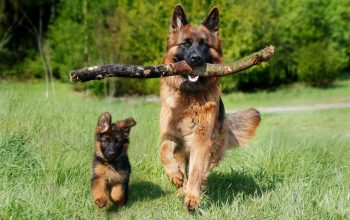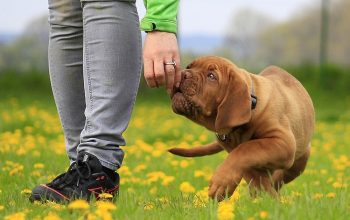How can pet owners create a comfortable and supportive environment for senior dogs, addressing their specific needs and promoting their overall well-being
Aging Gracefully:
Senior Dog Care and Comfort
As our beloved furry companions age, it’s essential to provide them with special care and attention to ensure they can enjoy their senior years comfortably. Just like humans, dogs experience aging-related changes that may require adjustments in their environment, diet, and overall lifestyle. By understanding their needs and making some necessary modifications, we can help our senior dogs age gracefully.
“The greatest fear of an elderly dog is to be forgotten and unloved. Shower them with even more care and affection as they embark on this final chapter of their life.” – Unknown
The Importance of Regular Veterinary Check-ups
Regular veterinary check-ups become even more crucial as our dogs age. Senior dogs are prone to various health issues, such as arthritis, hearing and vision loss, dental problems, and organ deterioration. Scheduling routine visits to the veterinarian ensures early detection and better management of underlying conditions that can significantly impact their quality of life.
Providing a Comfortable Environment
A well-padded and easily accessible bed is vital for senior dogs. Orthopedic beds, specifically designed for aging dogs, offer optimal support to aching joints and muscles, providing them with much-needed comfort during rest. Placing their bed away from drafty areas and on an easily reachable spot will minimize movement difficulties, allowing them to rest undisturbed.
Adjusting Diet and Exercise
Senior dogs have different nutritional requirements than their younger counterparts. Consult with your veterinarian to find the most suitable diet for your aging canine companion. Often, senior dog diets contain essential nutrients aimed at supporting joint health and a healthy weight. Additionally, regular exercise remains essential, but the intensity and duration may need to be adjusted to address reduced energy levels and age-related limitations.
Paying Attention to Cognitive Health
Just like humans, dogs may experience cognitive decline as they age, leading to changes in behavior and memory loss. Stimulating their minds with interactive toys and puzzles helps keep them mentally engaged. Additionally, maintaining a consistent daily routine and incorporating positive reinforcement training can help slow down cognitive decline and promote mental sharpness.
“The loyalty and love our senior dogs show us throughout their lives are unmatched. In their golden years, it’s our turn to repay their devotion with extra care and comfort.” – Unknown
The Power of Love and Affection
Our senior dogs have been by our side through thick and thin, and now it’s our turn to provide them with unwavering love and affection. Spend quality time with your senior dog, ensuring they feel cherished and valued. Regular grooming sessions, gentle massages, and cuddles can provide immense comfort, strengthen the bond you share, and make their final years truly special.
Remember, with your support and care, your senior dog can enjoy a comfortable and fulfilling life in their golden years!
Aging gracefully and comfortably in our later years is something that every one of us can relate to, regardless of our species. We all want what is best and most comfortable for our senior loved ones, and our elderly canine companions are no exception. Taking adequate care of a senior dog is essential to ensure they can enjoy the later years of their life.
When it comes to caring for older dogs, it’s important to monitor their overall health, providing them with regular veterinarian visits and the best nutrition possible. Senior dogs may require special dietary supplements or other nutrition depending on their individual health needs. It’s also important to make sure elderly pups get enough exercise; however, it’s important to adjust the level and intensity of exercise accordingly. Low impact activities such as walking may be a good option for senior dogs who may have difficulty with higher impact activities.
Just like humans, comfort is key for senior dogs. Older dogs may be more prone to joint pain, and providing them with a comfortable bed in a warm, quiet spot to rest may be beneficial. If the dog has difficulty getting around, ramps or stairs can be set up to help them get to their desired heights. Additionally, brushing their fur regularly can be soothing and provide comfort; it can also help reduce shedding.
In addition to regular care and comfort, it’s important to cherish the quality time spent with your senior pup. As they age, take it slow with your pet, as minor activities such as playing or walking may have a greater impact on their well-being. Showing your pup love and compassion during the later years is an essential part of ensuring they live out the remainder of their life in comfort and contentment.
Caring for a senior dog requires special attention and respect, aiming to ensure they enjoy life to its fullest. With adequate care, comfort, and diligence, elderly pups can age gracefully and in comfort.





